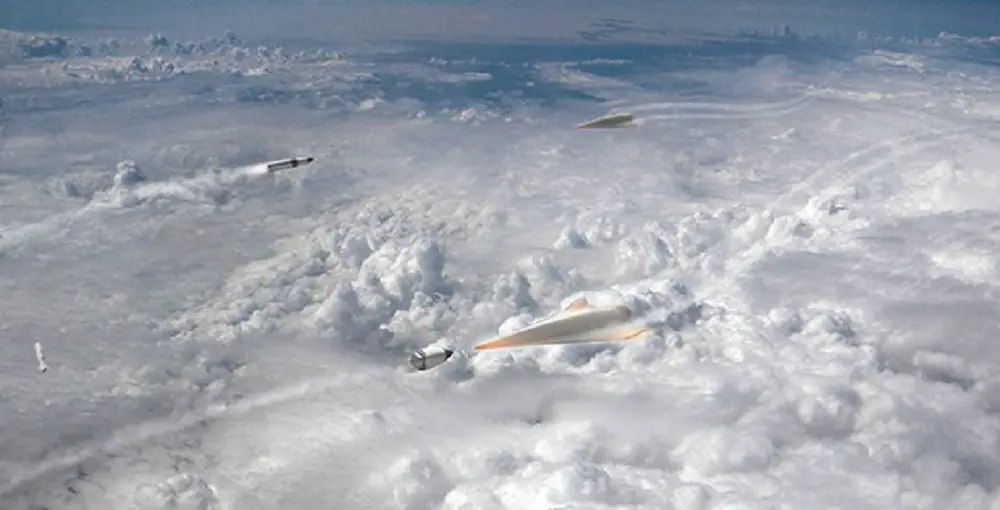Northrop Grumman Systems Corp., Baltimore, Maryland, has been awarded a $19,660,934 cost-plus-fixed fee contract for the base period of a research project for hypersonic boost glide systems. Fiscal 2019 research and development funds in the amount of $549,419; and fiscal 2020 research and development funds in the amount of $17,449,429 are being obligated at time of award. This contract is a sole-source award.The Defense Advanced Research Projects Agency (DARPA), Arlington, Virginia, is the contracting activity (HR0011-20-C0-0054). Work will be performed in Baltimore, Maryland, with an estimated completion date of March 2023.
The U.S. is bolstering its investment in hypersonic weapons, and all the major services are participating in various development programs in conjunction with DARPA. The DARPA/Air Force vision for FALCON is to develop, by 2025, a reusable hypersonic cruise vehicle that could take off from a conventional military runway and strike targets 9,000 nautical miles away in less than two hours. Flying at speeds up to eight times the speed of sound (Mach 8), the hypersonic cruise vehicle would carry a 12,000-pound payload comprising several unpowered, maneuverable, hypersonic glide vehicles called common aero vehicles; cruise missiles; small diameter bombs or other munitions.
The Glide Breaker program was launched in 2018 as part of this hypersonic missile defense effort. This particular project is intended to defend against boost glide vehicles, which are glide bodies lofted into the atmosphere on a ballistic missile. The glide body separates from the missile and glides unpowered to its target, with the ability to maneuver and follow unpredictable flight patterns. This maneuvering capability is one of the factors that makes these types of weapons harder to defend against than traditional ballistic missiles that follow predictable ballistic trajectories.
















